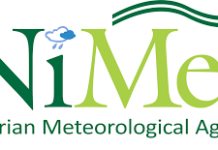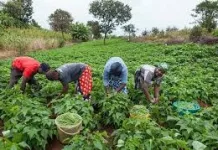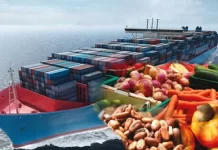Farmers in the rural setting have been tasked to adopt climate smart agricultural practices in order to improve their yields and ensure food security in Nigeria.
The call was made by the National Coordinator and Chief Executive Officer, African Union Development Agency – New Partnership for Africa’s Development (AUDA-NEPAD) Nigeria, Princess Akobundu.
Read Also: See Why CITN Says No To Tax Increase Call By IMF
Akobundu, gave the advice on Friday, at a one-week workshop on Climate Smart Agriculture, organised for farmers in Edo State.
According to a statement by Marcel Anyatonwu, a spokesman for the agency, Akobundu urged the farmers present to use the knowledge acquired for the benefit of their community and nation.
Akobundu, who was represented by Zacchaeus Maxwell, Director, Planning, Development and Implementation, AUDA-NEPAD Nigeria, said the workshop was apt.
According to him, no nation could develop adequately if her citizens were hungry and poor.
“Agriculture has been used as an important instrument in eradicating hunger, poverty and all forms of malnutrition.
Climate Smart Agriculture
“It will be a key determinant for achieving the Sustainable Development Goals Agenda 2030 and African Union Agenda 2063,” she said.
Also, Olotu Yahaya, a guest lecturer from the Department of Agricultural Technology, Auchi Polytechnic, Edo said: “It is important to educate and equip farmers with modern and climate smart agricultural practices, considering the effects of climate change on agriculture”.
Yahaya, who spoke on the topic; “Climate Smart Agriculture and Food Security”, added that proper application of the practices would help farmers witness great improvement in their yields as well as their income.
He added that it was important for them to drift from some old methods of farming, as climate change had altered some variables, making such practices unproductive.
Also speaking, Abiodun Amoo, a lecturer with the Agricultural Technology Department, Auchi Polytechnic, added that climate change had also affected acquaculture practices in Nigeria.
You Can Also Read: See Why CITN Says No To Tax Increase Call By IMF
Some of the challenges are shortage of water, flooding, water pollution, excess heat, among others.
Also, Mr Amoo shared what farmers could do to minimise losses.
He says it is important for them to diversify their income by embracing fish farming and poultry production.
He urged participants to desist from selling farm inputs given to them by the government.
Farmers were shown practical demonstrations of how to use simple and cost effective methods to improve their farm produce.






